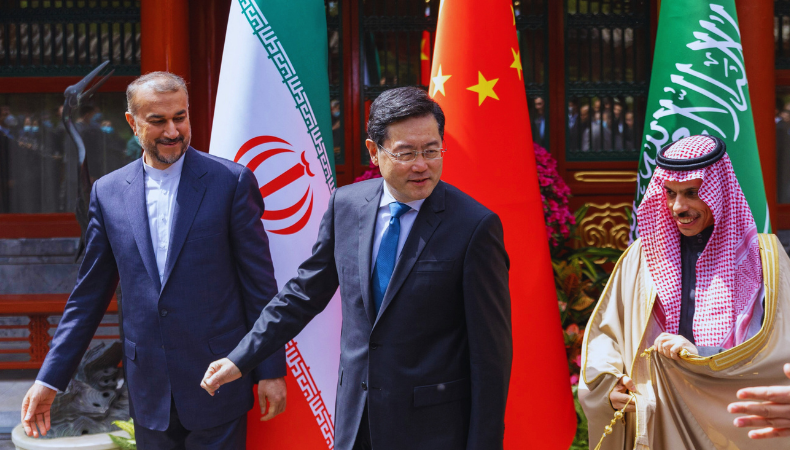China and the Middle East have been developing a friendship based on mutual interests and respect, especially in the fields of trade, energy, and infrastructure. China is the largest trading partner and the largest oil importer of the Middle East, and has invested heavily in the region’s infrastructure projects, such as ports, railways, and industrial zones, under its Belt and Road Initiative (BRI). China has also established strategic partnerships with several Middle Eastern countries, such as Saudi Arabia, Iran, Egypt, and the UAE.
The rationale of a China friendship for the Middle East is driven by several factors, such as:
The diversification and security of the Middle East’s economy, which is dependent on oil exports, but faces the challenges and risks of the volatility of the oil prices, the depletion of the oil reserves, and the transition to renewable energy. The Middle East seeks to diversify its economy and sources of income, and to enhance its security and stability, by cooperating with China, which offers a large and growing market, as well as technology and investment.
The independence and balance of the Middle East’s foreign policy, which is influenced by the regional and global powers, but also seeks to assert its own interests and values. The Middle East seeks to maintain its independence and balance, by engaging with China, which respects its sovereignty and non-interference, and which provides an alternative and a counterweight to the US and its allies, who have often intervened and imposed their agendas in the region.
The development and cooperation of the Middle East’s regional order, which is divided and conflicted by various issues and disputes, such as the Israeli-Palestinian conflict, the Iran-Saudi rivalry, and the Yemen and Syria wars. The Middle East seeks to develop and cooperate, by involving China, which supports the peaceful resolution and the political dialogue of the regional issues and disputes, and which promotes the regional integration and the multilateral mechanisms, such as the China-Arab States Cooperation Forum (CASCF) and the Shanghai Cooperation Organization (SCO).
The Benefits and Costs of a China Friendship
The friendship between China and the Middle East has brought some benefits and costs for both sides, such as:
The benefits of the friendship include the increase of the trade and investment flows, the improvement of the infrastructure and connectivity, the enhancement of the energy and food security, the expansion of the cultural and people-to-people exchanges, and the strengthening of the strategic and political coordination.
The costs of the friendship include the exposure to the debt and dependency risks, the vulnerability to the competition and conflict interests, the compromise of the human rights and environmental standards, the erosion of the trust and credibility, and the pressure from the third parties and the public opinion.
The Future and Challenges of a China Friendship
The friendship between China and the Middle East is expected to continue and deepen in the future, as both sides share common interests and face common challenges, such as the COVID-19 pandemic, climate change, and the terrorism. However, the friendship also faces some uncertainties and difficulties, such as:
The impact of the US-China rivalry, which could affect the stability and the balance of the region, and which could force the Middle Eastern countries to choose sides or to hedge their bets. The US-China rivalry could also create opportunities and spaces for the Middle Eastern countries to leverage their relations and interests with both powers.
The evolution of the regional dynamics, which could change the status quo and the alignment of the region, and which could pose new threats and opportunities for the cooperation and conflict resolution. The regional dynamics could also test the role and the influence of China in the region, and its ability and willingness to contribute and intervene.
The development of the domestic situations, which could affect the stability and the legitimacy of the governments and the societies, and which could influence the policies and the preferences of the actors and the stakeholders. The domestic situations could also challenge the expectations and the perceptions of the friendship, and its benefits and costs.

